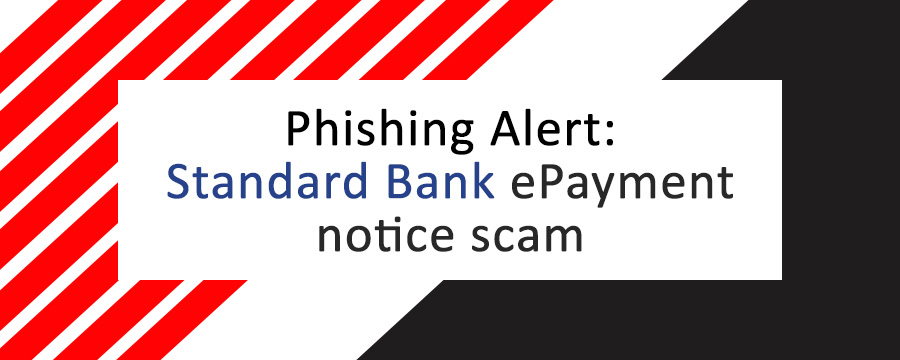Standard Bank Epayment Notice Scam
Thursday, September 10th, 2015
Are you getting notices of epayments that you’re not sure are legitimate? Be careful – it might be a scam. We’ve flagged an example of this in the Standard Bank epayment notice scam. This phishing scam targets Standard Bank account holders.
What does the Standard Bank Epayment Notice scam look like?
This phishing scheme, like all other effective phishing schemes, looks like a legitimate notice from Standard Bank. Typically the notice will offer a reward or notify you that someone has attempted to breech your account.
The primary aim of phishing scams is to get your personal details or other sensitive information from you without you realising. This information will generally be used to access your banking account.
How do I know if bank notices are a scam?
The easiest way to identify whether or not the notice you’ve received is a scam or not is to check where you’re being directed by the notice. In the example above, hovering over “Reward” displays the link to a website that is not an official Standard Bank website. Always hover over links if you’re unsure of a notice from your bank to make sure they are links to official websites.
Never click the link if it is not going to send you to the official website of your bank and never enter your banking or personal details without being absolutely sure that you are on the official website of your bank.
But the link in the email says it’s from my bank’s official website
Don’t be fooled by dummy links that are added as text into scam emails. While a link may look legitimate as it appears in the email, scammers add links to their own website to the text in the email to steal your information. Rather be completely sure and hover over these links too.
Still not sure?
If you’re still uncertain after you’ve taken all of these precautions, we recommend that you get in touch with your bank via their official website. This is the official Standard Bank website if you’re being targeted via this route.
Keep safe and watch the Knowledgebase for more scam alerts!

